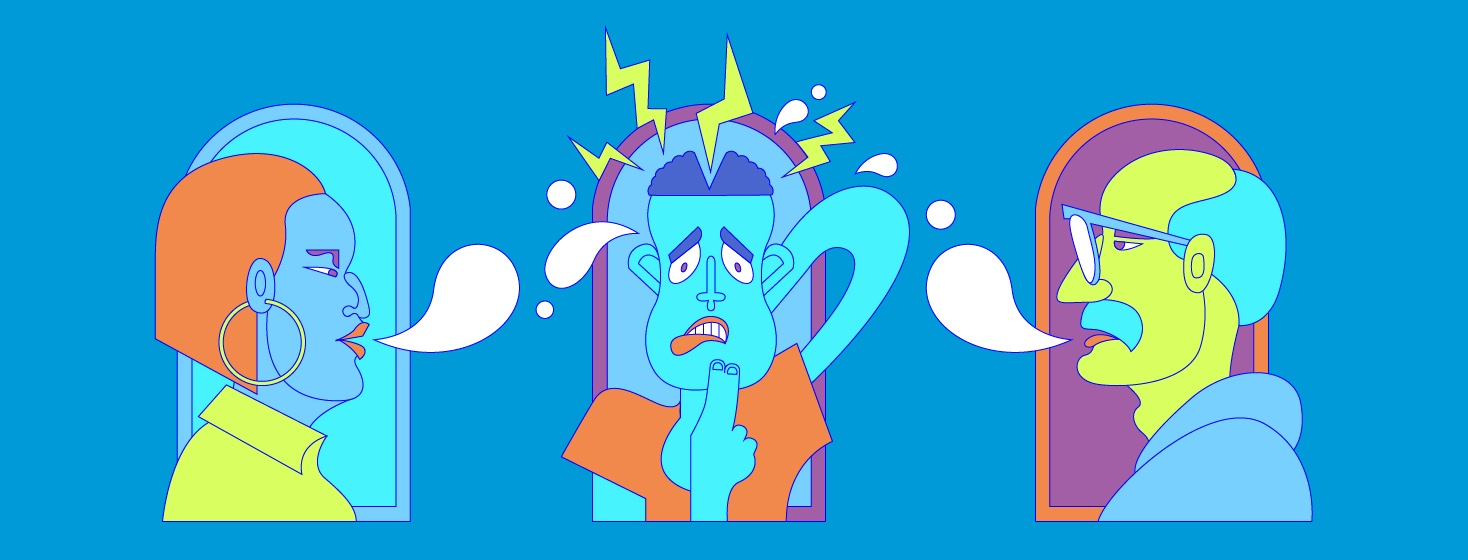The Stigmas I Face: HIV, Mental Health, and Migraine
What are types of stigmas?
While there is a stigma for multiple health issues, there are also different types of stigmas. The most discussed stigma types are social (public, societal) stigma, self-stigma, and structural (institutional) stigma.
Social stigma is based on the attitudes of others and the supporting of stereotypes related to the condition. When people first think about stigma, the social stigma is normally what comes to mind.1
Self-stigma focuses on an individual’s internalized shame, thoughts, and beliefs about their own condition. This can affect how an individual feels about themselves, their relationship with others, their motivations to adhere to their treatment, and their sense of self-worth.1
Structural or institutional stigma comes from a governmental or organizational policy that decreases the rights and opportunities of individuals with the condition. This may be intentional or unintentional.1
The experience with HIV-related stigmas
Despite how far the treatment of HIV has come, so many people are still uneducated about HIV. Many people still view HIV as a death sentence and still believe that the virus can be transmitted by day-to-day activities.
It seems as though many people also believe that somebody becomes HIV positive by behaving inappropriately to their own morals and, therefore, see it as a punishment.
I have struggled with social stigma, especially when it involves disclosure. Part of my family knows about my status because they were with me in the hospital when I was diagnosed.
But I have family that does not know because they would not react well. Sadly, I have even had people try to shame me, use my status to control me, and force me to stay with them. This type of behavior has made me fear disclosing to more people.
I personally deal with an extreme amount of self-stigma when it comes to being HIV-positive. This is something I have struggled with since I received my diagnosis. I find myself thinking about how different my life would be if I was not HIV-positive.
Even though deep down I know that being positive does not devalue me, I still struggle. My decreased view of my own self-worth caused me to isolate myself for the longest time. This led me to develop severe depression and anxiety issues.
Mental health is dismissed and stigmatized
When someone mentions stigma, the first condition that comes to mind for most people is mental health issues.
A large portion of society associates mental health issues with dangerous and violent people. There are people who do not view mental health conditions as valid illnesses. This part of society would likely be the people who label somebody with depression as just being lazy.
Finding a way to address my mental health needs
I have had my own family members roll their eyes and dismiss me when my mental health illnesses were brought up. Also, I have been told how I should be over a trauma that left me with post-traumatic stress disorder. Some people even say that I am just seeking attention.
All of this judgment I have faced led me to find a therapist through a virtual doctor’s office. This helps me mentally because nobody can see me seeking treatment.
Structural stigma with migraine
Individuals who have migraines endure a surprisingly large amount of stigma. A migraine cannot be seen physically or on some type of test.
The way migraine pain is rated is very subjective. Unfortunately, this leads to a lot of disbelief from other individuals. Most of society tends to believe that a migraine is just a headache which leads to people assuming that the person with the migraine is being dramatic or lying about the pain. This stigma can be found in the medical community, at work, even at home.
I personally cannot count how many times somebody in my life has implied that I am simply being dramatic about a headache. One of the worse stigmas I faced with migraines was the structural stigma. This stigma occurred within emergency rooms.
Instead of receiving help to get rid of my migraine, the doctors acted like I was a drug seeker. It became so bad that I stopped trying to seek help from the emergency room regardless of how bad the migraine became. I already knew that they would not help me.
Therapy to get past migraine self-stigma
There was a time when I developed self-stigma over my chronic migraine. I felt like a horrible spouse and a bad family member, especially when I had to miss a function or event due to my migraine. All the judgment I received from society started to seep into my head. The guilt and shame continuously compounded, which lead to bad depression. With the help of therapy, I was able to get past the migraine stigma.
People are quick to judge
It is easy to see that we need to decrease the stigma in our society. So many people are quick to judge and label other people for no reason.
We need to continue to educate the public about these health conditions. Hopefully, by understanding what is currently misunderstood, we will stop seeing so many people being stigmatized.
Have you been stigmatized? What was your experience like?

Join the conversation